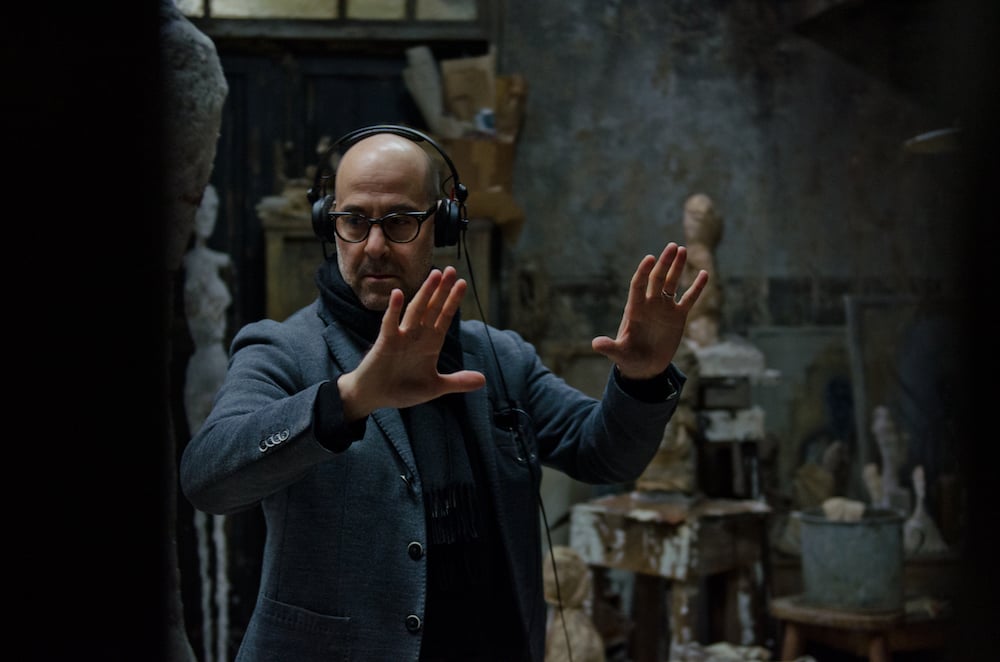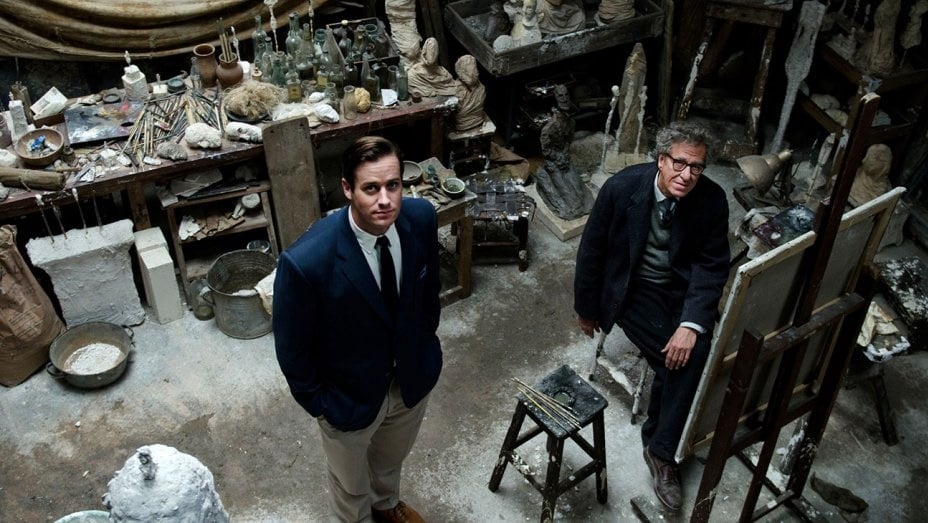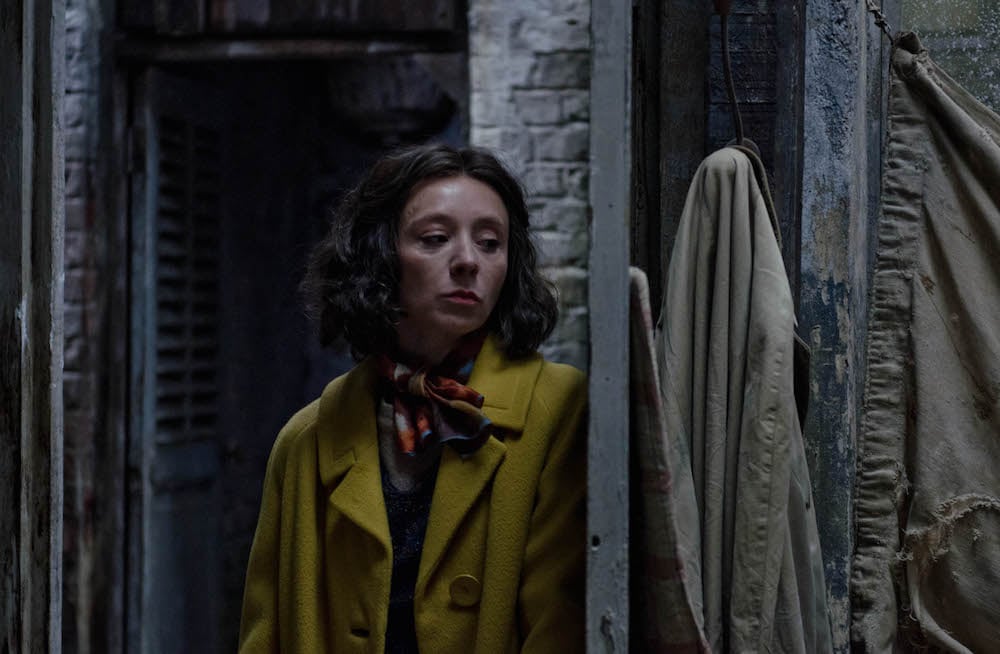People
Director Stanley Tucci on Why He’s Been Waiting Years to Make His New Film on Giacometti
Geoffrey Rush plays the Swiss sculptor in Tucci's new film Final Portrait.

Geoffrey Rush plays the Swiss sculptor in Tucci's new film Final Portrait.

Eileen Kinsella

Today marks the US release of Final Portrait, the Emmy Award-winning actor and director Stanley Tucci’s hotly anticipated film about Swiss sculptor Alberto Giacometti. The film, which stars an ebullient Geoffrey Rush as Giacometti, is an adaptation of James Lord’s acclaimed 1965 memoir, A Giacometti Portrait, a first-person account of the author’s friendship with the artist and his time modeling for him.
What was supposed to be a one or two-day sitting stretched into an 18-day affair, during which time Lord (played by Armie Hammer) witnessed the artist’s variously inspired, tortured, and tedious creative process. Having been thrust into the center of Giacometti’s world, Lord became privy to his complex relationships with his loyal brother Diego (Tony Shalhoub), his even more loyal wife, Annette (Sylvie Testud), as well as local prostitutes and his mistress Caroline (Clémence Poésy).
Tucci skillfully captures the obvious, ever-present tension between Giacometti’s outsize ego and his deep-seated insecurities. Ahead of a premiere screening of Final Portrait at New York’s Guggenheim Museum—which will open a major survey of Giacometti works this June—Tucci sat down with artnet News to talk about what inspired the project, why he chose not to play the artist himself, and what he hopes people take away from film.
Why did you want to focus on Giacometti and this particular story?
Growing up with a father who was an artist and art teacher, I was exposed to numerous artists and movements. Sometime after college, I happened upon Giacometti and something just struck me. The work was so incredible. I read a lot about him and then I found that book [A Giacometti Portrait]. I carried it with me like a kind of bible—like a creative bible. It is so beautifully written and interesting to read. Though I first discovered the book more than three decades ago, the idea for transforming it came many years later. By the early 2000s I had been ruminating on this for a while. I thought: “Can I do this? Can I make this into a movie?” By the time Lord passed away in 2009 I had acquired the rights to the story and finished a script.
Why did you hesitate for so long?
It’s a hard story to tell—two guys sitting in a room? How do you do that? My main concern was that it would be like watching paint dry. But I think we did it.

Armie Hammer as James Lord (L) and Geoffrey Rush as Alberto Giacometti.
Photo by Parisa Taghizadeh. Courtesy of Sony Pictures Classics.
Was it difficult to reconcile the artist’s genius with his less charitable traits?
He was at once a very selfish and very generous person. He could be incredibly generous with his friends, with prostitutes—not so much with his brother and not so much with his wife. How or why that relationship went on as long as it did I have no idea. What I wrote was Lord’s account and what I culled from some other sources. This is who he was, you have to show it and you don’t apologize for it. There’s no comment on that. There was a real ego there and yet at the same time, he was incredibly insecure, self-effacing, self-doubting, self loathing.
Did you ever consider acting in the film yourself?
I thought about playing Giacometti. But then I thought it would be better if I just I just directed the film. It would have compromised the film I really wanted. It’s such an intimate, delicate piece that I needed the focus to be on every nuance of the behavior.

Sylvie Testud as Annette Giacometti. Photo by Parisa Taghizadeh. Courtesy of Sony Pictures Classics.
What do you hope audiences will take away from the film?
Certainly understanding and appreciating Giacometti, but I think also understanding the creative process and how odd it was. The creation of art is a really interesting and important thing, but it isn’t necessarily so precious. Do you know what I mean? A lot of the time we see movies about artists and it’s so precious and angst-ridden. Of course there are moments of that but then it’s like the scene where Giacometti takes the sculpture and he throws it away or a painting is packed up and carted away. There is humor. That is really part of the film, he was funny, and he wasn’t precious.
What was the process of recreating Giacometti’s studio like?
We relied on images and information from James [Lord]. As far as re-creating the actual artwork, we weren’t really doing that. We were sort of making it up, with the exception of the big head [a bust of his brother] and the man walking. At one point when we sent black-and-white images of the studio we built to author and expert Michael Peppiatt, he asked, “Why are you sending me a picture of Giacometti’s studio?”
Final Portrait, released by Sony Classics, opens today in New York and Los Angeles.